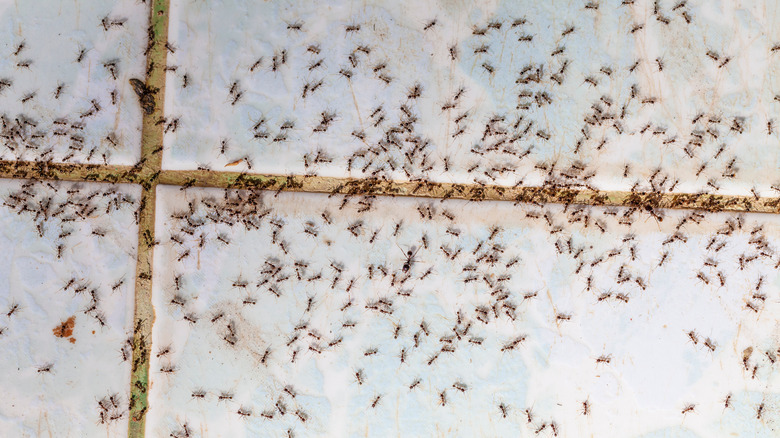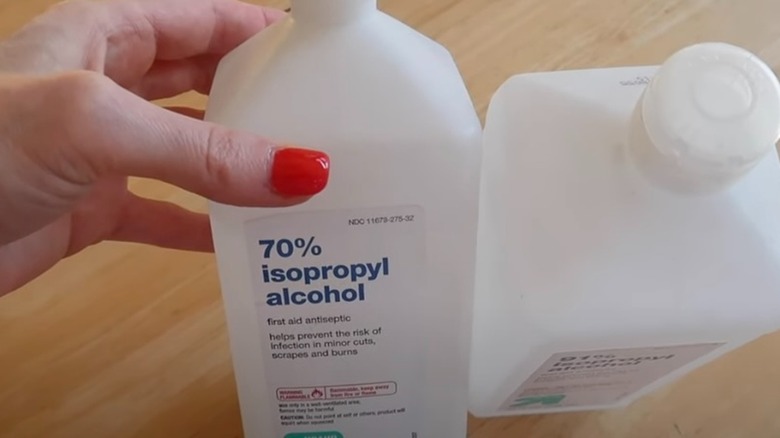Use This Common Household Essential To Get Rid Of Ants In The House
While seemingly harmless, ants can pose significant challenges once they establish a colony within your home. One primary concern is food contamination. As ants climb on your food, they can deposit harmful bacteria and pathogens that potentially lead to illnesses. Moreover, specific ants, such as carpenter ants, have the ability to weaken foundations and structures over time due to their tunneling activity while nesting.
Beyond these practical concerns, the mere sight of ants crawling around can diminish the aesthetic appeal of your space, making it seem unclean — certainly not an ideal scene, especially if you're hosting guests or considering selling your home. Luckily, rubbing alcohol can effectively get rid of ants.
To use rubbing alcohol, fill a spray bottle with water and add 1 teaspoon each of rubbing alcohol and dish soap. Shake well and spray on ants or their trails. For outdoor infestations, placing cotton balls soaked in rubbing alcohol along ant trails can deter them.
Why rubbing alcohol is an effective ant deterrent
Rubbing alcohol serves as an efficient ant repellent and killer. Its efficacy stems from its toxicity to ants. As Pest Bros explains, the ethanol "dissolves an ant's exoskeleton," leading to dehydration and death. As a disinfectant, rubbing alcohol also eliminates bacteria and pathogens ants might carry, promoting a cleaner and safer home environment. Further, its strong odor is a repellent, disrupting ant pheromone trails and hindering their communication pathways.
When using rubbing alcohol to address ant problems, following guidelines to ensure effectiveness and safety is essential. Cleaning surfaces with soapy water beforehand is a good practice. This not only maximizes the effectiveness of the rubbing alcohol but also prevents its absorption by dust. For safety, use the mixture during the day when windows can be opened to dispel its potent smell. For the best outcome, reapply daily for one week.
Given its flammable properties, rubbing alcohol should be stored away from open flames. Its toxicity means inhaling it in significant amounts can be harmful. Also, avoid applying it to plants or soil to avert potential damage. Above all, exercise caution. Always adhere to label directions, wear recommended protective gear when necessary, and avoid substituting rubbing alcohol for professional pest control solutions.

